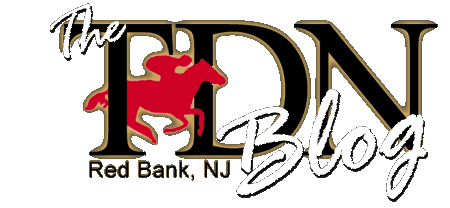--Brian DiDonato
This is a pivotal time for the U.S. gaming industry. On Friday, April 15, Federal prosecutors charged the operators of the three largest online poker sites--Full Tilt, Pokerstars and Absolute Poker--with fraud and money laundering, seized the sites' IP addresses and essentially shut out all U.S. customers while temporarily freezing their real-money accounts. Those sites, and smaller ones like them, had, until now, operated with virtual impunity despite being in violation of the Unlawful Internet Gambling Enforcement Act (UIGEA). It seems likely that online poker will eventually be legalized and regulated given its incredible popularity in America and the massive windfall of cash that would be generated for financially desperate Federal and State governments but, for now, millions of American customers are left without a way to play the game they enjoy and/or make a living from.
After "Black Friday," as it has been dubbed by the poker community, I had planned on writing something about the influx of online players to poker rooms at racetracks. I browsed Parx Racing's "live game report" in search of a spike in the number of tables operating at a given time, and visited the Pennsylvania track's poker room to ask dealers and managers if they had noticed an increased number of customers since their online competitors had been shut down. The general consensus was that there was a noticeable, but not exponential spike in activity, especially at the higher limits. As someone with a vested interest in the health of our industry, I was pleased to hear that attendance at tracks--albeit for something unrelated to racing itself--was increasing. But I couldn't draw any conclusions about the impact this would have on the health of the sport. Any effects seemed like they would be minimal. The casino side of tracks, which subsidize somewhere around 30% of U.S. racing's purse structure, might increase their revenue slightly, but there would be no meaningful increase in handle on races. If anything, it could merely widen the gap in profit margins between racinos and tracks and raise further questions about the viability of operating a failing business by propping it up with a profitable one.
But when gaming expert Eugene Christiansen's New York-based firm Christiansen Capital Advisors released its study on the potential impact of exchange wagering on U.S. racing Monday, it dawned on me: this is racing's answer to the death--or at least coma--of online poker. The study has significant and undeniable flaws, perhaps partly because it was commissioned by TVG, a U.S.-based subsidiary of Betfair, the pioneer and largest operator of exchange wagering in the world. It fails to consider important sets of data and largely ignores many of exchange wagering's drawbacks, but it also points out the wagering platform's significant advantages. Exchange wagering would serve to, according to a press release that accompanied the study, "attract new people into the consumer base of Thoroughbred racing, in particular people who are younger and tech savvy" while restoring “a measure of price competitiveness to licensed U.S. Thoroughbred betting operations."
"Young" and "tech savvy" could not more accurately describe the typical online poker player. The average player is in his early to mid 20s, grew up in the era of computers and video games, and is comfortable playing on up to 24 virtual tables simultaneously. He is capable of generating significant wagering volume or "churn" (capital cycled and recycled through wagering markets). While currently there is little interest in wagering on racing from the typical online poker player, the games are not dissimilar. Both have an edge on other forms of gambling in their complexity and intellectual stimulation--both are cerebrally challenging and involve significant strategy and skill (despite what misinformed opponents of legalized poker seem to believe). Concepts such as "value" and "bankroll management" lie at the core of winning strategy in both games, and the educational backgrounds and personalities of important horseplaying figures, such as Andy Beyer and Steve Crist, only differ from the current breed of successful online poker players in their respective historical contexts.
Poker, however, in its human vs. human form with relatively low rake is perceived as "beatable" (and it is), while race wagering, despite its similar human vs. human structure (as opposed to an individual playing against the house as in other casino games), is not (it's still beatable in its current form, but to a much lesser degree). Part of this difference in perception is due to racing's stigma as a corrupt game with rampant cheating, which is something that obviously must be addressed, but the other difference is the disparity in take-out between the two games. The average rake taken from a pot in an online cash poker game is somewhere around 5% with a maximum of $1-$5. The take-out on a win bet through the tote is at least three times that with no maximum, while the fee charged by operators of a betting exchange is much closer to the rake paid on a poker hand.
This is the time for the racing industry to actively and aggressively seek out a larger percentage of the gaming pie. With the very significant advantage of current online legality over one of its most formidable competitors, racing can generate a new consumer base through the introduction of exchange wagering. Readjustment of the pricing model coupled with innovative marketing strategies can appeal to a large group of young people that are currently without a product to consume. New Jersey and California already have the necessary legislation in place to implement exchange wagering, and tracks, horsemen and potential exchange operators in those and other jurisdictions would be very well-served to work out all the kinks as soon as possible before their competitor for gaming dollars is reborn and fortified through government support.


No comments:
Post a Comment